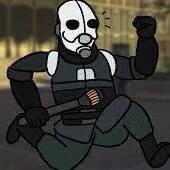Trying to find out the most efficient resource in a game.
-
Featured Topics
-
Topics
-
DoughmanX_HD ·
Posted in Windows1 -
220VoltsallCore ·
Posted in Operating Systems1 -
Ridoheru ·
Posted in Graphics Cards0 -
0
-
EpicAAron ·
Posted in General Discussion0 -
3
-
Alexis-Ms_Sun21 ·
Posted in Troubleshooting0 -
2
-
Cramig88 ·
Posted in New Builds and Planning12 -
Ghostsanonymous ·
Posted in Displays3
-



















Create an account or sign in to comment
You need to be a member in order to leave a comment
Create an account
Sign up for a new account in our community. It's easy!
Register a new accountSign in
Already have an account? Sign in here.
Sign In Now